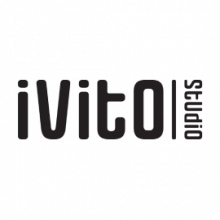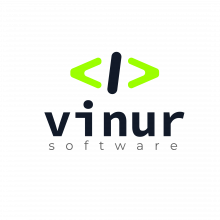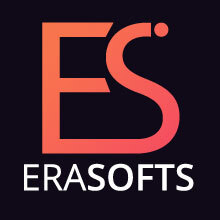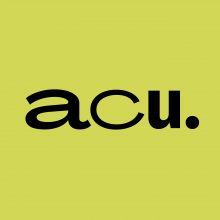Explore Top NodeJS Development Companies in Armenia
Fidem is a creative, full service web design and development company. We provide web design, web portal and e-commerce solution. We are a team We d...
Achigo is a full-service marketing agency that offers customized marketing packages and strategies for Ecommerce, Amazon, Real Estate and SaaS industr...
Services:
We are a small and dedicated team of professionals. We are specialized in cloud-based application development. Usage of our own project management too...
Services:
Priotix is a global technology consultancy that designs, develops and supports unique software solutions, helping clients take their businesses forwar...
Cypress is a mobile app development company based in Armenia. We focus especially on mobile apps because they add huge value to businesses, by making...
Expert IT solutions provider. Specializes in web and digital services. Delivers innovative, custom tech solutions for diverse business needs.
Software and blockchain development company, bringing the best engineering teams and talents to startups, SMEs, and enterprises around the world.
Craft your dream software. We build custom solutions for individuals & businesses. Innovate faster, achieve more.
An IT company specializing in custom software development
EraSofts LLC is a web and mobile development company specializes in creating websites ,web and mobile based applications for clients.
We deliver full-cycle services from market research and business modeling to software and cloud engineering, product design, and marketing.
Web & Software Development to fuel your growth
Services:
Your Technology & Innovation Partner
Services:
Tailored Software Solutions
Digital is in our DNA. We are born in the digitalization century to unite the world and create unique transformational experiences.
WE build the software you dream.
Software Development Company
Achievements Opportunities Discovery
Turning your Brainy ideas into great products!
Services:
Developing user-centered software solutions of any complexity based on business needs, data analytics and user feedback.
Staff recruitment agency for information technology companies
Strategy and Business Automation Made Easy!
Filter NodeJS Development Companies in Armenia by Cities
Find the right tech company near you or from a specific city. Some of the best companies might be located in smaller cities.
Find more NodeJS Development companies around the world
TechBehemoths is the world's most advanced and user-friendly platform to match IT Companies with real clients without hustle.
The Armenian IT Industry: General Country Overview
The Armenian IT Industry: General Country Overview
Armenia is known for its continuous development of the IT sector and has gained its reputation as the main caucasian hub of software development, industrial computing, and electronics.
Due to the increasing number of investments in the field, IT is one of the most significant sectors in the Armenian economy. According to Statista, the IT Industry market in 2025 is estimated to be $134.75 million with a CAGR for 2025-2030 of 4.46%.
Based on numbers provided by the BBC, in 2025, there were more than 4,000 companies in the ICT sector, and compared to previous years, the number reveals a growth is around 10% annually.
The cost per hour in Armenia is comparatively low compared to the neighboring countries, which makes it a competitive country even globally. With a cost of only $2.53 - $7.33/hour, Armenian tech professionals earn on average a salary of $404.92 - $1,173.25 USD/month, and thus, it is a great destination for other companies to relocate or to source the labor force.
According to Anna Khachatrian from CodeRiders, Armenia has a growing and dynamic ICT industry that has become one of the most promising sectors of the country's economy. The ICT business environment in Armenia is characterized by a highly skilled workforce, favorable government policies, and a supportive startup ecosystem. The country has a robust IT infrastructure and a growing number of tech companies, ranging from startups to established software development firms, that provide services in software development, IT outsourcing, and digital marketing.
On the other hand, Anahit Ghazaryan from Addevice mentions that corruption, bureaucracy, and a lack of transparency remain significant challenges. In addition, the country also faces geopolitical tensions with neighboring countries, which can have an impact on its business environment.
Why Work With Armenian Companies
Aside from the fact that it’s a great budget choice, Armenian tech professionals enjoy a good reputation on the global and regional stage. The fields and specializations that they prove to be competitive vary from a good experience with multinational companies to above-average English proficiency and creativity skills.
At the same time, the Founder and CEO of Rocket Systems, Garik Khachanyan, states that one of the biggest advantages of outsourcing IT services to Armenia is the cost savings. The cost of living in Armenia is lower than in many other countries, which means that salaries for IT professionals are also lower. In addition to cost savings, outsourcing IT services to Armenia offers other benefits, such as A strong educational system that produces a high number of graduates in STEM fields.
However, if we could break down the reasons why it's good to work with Armenian IT Companies, we could have the following list:
- Highly skilled talent pool: Armenia has a strong tradition of math and science education, which has helped to develop a highly skilled workforce in the IT industry. Many IT companies in Armenia employ engineers and developers with advanced degrees and experience in cutting-edge technologies.
- Cost-effectiveness: The cost of living and doing business in Armenia is relatively low compared to many other countries, which means that IT companies in Armenia can offer competitive rates for their services without compromising on quality.
- Cultural compatibility: Armenia has a Western-oriented culture that is similar to that of many European and North American countries. This makes communication and collaboration between local IT companies and their clients from other countries easier and more effective.
- Supportive government policies: The Armenian government has implemented several policies aimed at promoting the growth of the IT industry in the country, including tax breaks and other incentives for IT companies.
- Proximity to major markets: Armenia is strategically located between Europe and Asia, with easy access to major markets in both regions. This makes it an attractive location for IT companies looking to expand their operations globally.
What to Be Aware of When Working With an Armenian Company
When working with a local IT company from Armenia, there are several things to keep in mind:
- Language Barrier: Armenian is the official language of Armenia, so communication with the local IT company may be in Armenian or Russian. English is spoken by many IT professionals in Armenia, but not all, so make sure to clarify communication channels before starting any project.
- Time zone: Armenia is located in the GMT+4 time zone, so make sure to consider the time difference when scheduling meetings or deadlines.
- Cultural Differences: As with any international business partnership, it's important to be aware of cultural differences. In Armenia, punctuality is highly valued, and it's considered impolite to arrive late to meetings. Additionally, personal relationships are important, so taking the time to get to know your Armenian colleagues can be beneficial.
- Quality of Service: Armenia has a growing IT industry, and many local companies offer high-quality services. However, it's important to research potential partners thoroughly and ask for references to ensure that you're working with a reputable company that can deliver the results you need.
- Legal and Financial Considerations: Armenia has its own legal and financial systems, so make sure to consult with a local expert to ensure that you're complying with local regulations and tax requirements. It's also important to clarify payment terms and any other financial arrangements before starting any project.
Are Companies From Armenia Reliable?
With all challenges mentioned above, the Armenian web companies still deliver high-quality IT services, in a decent time frame, and with a good budget outcome.
How Does Armenia Relate to Its Neighbors in Terms of IT?
With only Georgia and Azerbaijan as neighbors, Armenia lacks serious competition in terms of IT. Based on a study conducted by Forbes, Armenia is the most reliable country in the Caucasus due to the bilingual capacities of human resources, adaptability, and a strong image on the global stage, having as a background its neighboring countries.
Armenia has become an attractive destination for ICT investments due to its accessible human resources and continuously developing industry, supported by government policies. With the latest government changes, the country expects more than 125 web agencies to relocate or source IT services from Armenia in the next 2 years.
The Ease of Starting An IT Business In Armenia
Armenia has made significant efforts to create a favorable business climate for entrepreneurs, particularly in the IT sector.
The government has implemented a range of reforms to streamline business registration and licensing procedures, reduce bureaucracy, and improve access to financing. Here are some key factors to consider when starting a new IT company in Armenia as a local entrepreneur
- Business Registration: The process of registering a new company in Armenia is straightforward and can be completed within a few days. The country also offers online company registration, which can make the process even easier.
- Tax Incentives: Armenia offers various tax incentives for IT companies, including a 0% corporate income tax rate for software development companies and a 10% flat tax rate for other IT companies.
- Access to Financing: The Armenian government has established various funds to support IT startups and SMEs, including the Innovation and Technology Fund and the Enterprise Incubator Foundation.
- Skilled Talent Pool: Armenia has a highly skilled and educated workforce, particularly in the IT sector. Many universities in the country offer computer science and engineering programs, and there is a strong emphasis on STEM education.
- Location: Armenia is strategically located between Europe and Asia, making it an attractive location for IT companies looking to access both markets
However, it's worth noting that Armenia still faces some challenges when it comes to the business climate and a relatively small market size.
Despite these challenges, the country has made significant progress in recent years and is a promising location for local entrepreneurs looking to start an IT company.
Armenian Government Support for IT Businesses
The government of Armenia has been actively promoting the IT sector and has introduced various policies and programs to support local entrepreneurs. For example, the government has established several technology parks and business incubators to support startups.
Based on the feedback gained from three Armenian-based IT companies - CodeRiders, Addevice, and Rocket Systems, the Armenian government supports the local IT industry in the following ways:
- Funding opportunities: The government has established several funding programs to support the growth of the IT sector, including the Enterprise Incubator Foundation, which provides seed funding, mentoring, and office space to startups.
- Education and training: The government has invested in IT education and training programs, such as the TUMO Center for Creative Technologies, which provides free after-school programs to students interested in technology and design.
- Legal framework: The government has established a legal framework to protect intellectual property rights and facilitate business registration and licensing for IT companies. International partnerships: The government has established partnerships with international organizations and companies to promote the growth of the IT sector in Armenia, including the World Bank, USAID, and Microsoft.
- Startup incubators: The government has established several startup incubators to support the development of new IT businesses. These incubators provide resources and support to early-stage companies, including mentorship, funding, and office space.
Digitain, Picsart, Synopsys - Dominant Companies in Armenian ICT
Anahit Ghazaryan from Addevice also mentions that the local ICT market is dominated by several big companies.
One of the most well-known is Synopsys, a global leader in electronic design automation (EDA) and semiconductor IP. Synopsys has a large development center in Armenia and employs over 500 engineers, making it one of the largest technology employers in the country. The company has been operating in Armenia for over 15 years and has contributed significantly to the development of the local tech industry.
Another prominent IT company in Armenia is PicsArt, a popular photo editing and social media app with over 1 billion downloads worldwide. PicsArt was founded in Armenia in 2011 and has since expanded to over 30 countries, employing over 500 people globally. The company has received several awards for its innovative technology and has helped to put Armenia on the map as a hub for tech startups.
At the top, there is also Digitain, a leading provider of online gaming and sports betting solutions. Digitain has over 1,000 employees globally, with a significant portion based in Armenia. The company has been recognized for its innovative technology and has won several awards for its online gaming products.
However, beyond the title of dominant companies, there are other companies worth mentioning. Of course, CodeRiders, RocketSystems, and Addevice stand out in the Armenian IT sector. Among them, there are other Armenian IT companies that have a proven track record and can also be considered the best in their country.
Yerevan, Gyumri - The Best Places in Armenia For IT Companies
While Armenia is a relatively small country, the IT industry is concentrated in a few cities and regions. Two of the best locations for IT companies in Armenia are Yerevan & Gyumri.
Yerevan is the capital and largest city in Armenia, with a population of over one million people. It is home to the majority of the country's IT companies, including some of the largest and most successful ones. Yerevan has a well-educated workforce, with many universities and technical schools offering degrees in IT-related fields. The city also has a growing startup ecosystem, with several incubators and accelerators supporting early-stage companies.
Gyumri is the second-largest city in Armenia and is located in the northwestern part of the country. It is known for its strong engineering and technical talent, with many IT companies setting up operations in the city. Gyumri has a lower cost of living compared to Yerevan, which can be attractive to startups and smaller companies. The city is also home to the Gyumri Information Technologies Center, which provides training and support to IT companies and entrepreneurs.
Overall, Yerevan and Gyumri are two of the best locations for IT companies in Armenia due to their talented workforce, supportive ecosystem, and favorable business environment. However, it is important to note that there are other cities and regions in Armenia that also have a growing IT industry, such as Vanadzor and Dilijan.
Talent Pool and Workforce
Armenia has a highly educated and skilled workforce, with a particular focus on STEM fields such as IT. The country's educational system places a strong emphasis on science and technology, with many universities offering IT-related courses at both the undergraduate and graduate levels. As a result, there is a large pool of talented and experienced IT professionals in Armenia. Many of these professionals are fluent in English and have experience working with international clients, making them attractive to foreign companies looking to establish operations in Armenia.
There is also a strong desire among young people in Armenia to pursue careers in the IT industry. The industry offers high salaries, opportunities for professional growth and development, and the chance to work on innovative and exciting projects. Additionally, the government has implemented various policies and initiatives to support the development of the IT sector and promote IT-related education and training, further fueling interest in the industry.
Final Thoughts
Overall, the local talent pool in Armenia is highly skilled, motivated, and attracted to the IT industry, making it an ideal location for IT companies looking to establish operations in the country.
This article was created together with prominent figures and professionals coming from reputable Armenian IT companies. Special credits: Anahit Ghazaryan, Anna Khachatrian, Garik Khachanyan
What is NodeJS and what are its benefits for your projects?
Node Js is a JavaScript runtime environment that allows developers to run JavaScript code on the server-side. Unlike traditional server-side technologies like PHP or Ruby, which are typically used for handling server tasks, Node.js enables developers to use JavaScript for both client-side and server-side development. Below we’ll dive deeper into the types of projects built with it, and how companies can leverage it for their projects:
Node.js is built on the V8 JavaScript engine from Google, making it incredibly fast and efficient. It uses an event-driven, non-blocking I/O model, which makes it ideal for building scalable and real-time applications. Node.js is particularly well-suited for projects that require high concurrency, such as web applications, APIs, chat applications, streaming services, and more. It has a large and active community, which has led to a rich ecosystem of libraries and packages available via npm (Node Package Manager), simplifying development tasks.
As for the type of projects that can be built using Node.js, we can name the following:
- Web Applications: Many web applications are built using Node.js, often using web frameworks like Express.js. These applications can range from small personal websites to large-scale, enterprise-level platforms.
- APIs (Application Programming Interfaces): Node.js is commonly used to create RESTful APIs that allow different services or applications to communicate with each other. This is essential for building services that provide data to mobile apps, websites, and other clients.
- Real-time Applications: Node.js is favored for real-time applications, such as chat applications, online gaming, and collaborative tools. The event-driven architecture of Node.js is well-suited for handling multiple concurrent connections.
- Streaming Services: Media streaming platforms and services that deliver audio and video content use Node.js to efficiently manage and serve media files to users.
- IoT (Internet of Things): Node.js is used in IoT projects to handle data collection from sensors and devices, process that data, and communicate with cloud services.
- Serverless Functions: Node.js is a popular choice for building serverless functions or AWS Lambda functions due to its lightweight and quick startup times.
Node.js is a versatile technology that can be effectively utilized in both smaller and larger projects, but its suitability hinges on several key factors.
For smaller projects, Node.js offers distinct advantages. Its event-driven, non-blocking I/O model allows developers to rapidly prototype and develop applications. This makes it an excellent choice for creating functional prototypes, minimum viable products (MVPs), or simple web tools swiftly.
Node.js's efficiency in handling I/O operations can lead to responsive user experiences, which is valuable for small-scale applications like personal websites, blogs, or straightforward web tools. Moreover, Node.js itself is lightweight, making it suitable for projects with minimal hardware or resource requirements. It doesn't impose significant overhead, making it a cost-effective option.
Node.js is also well-suited for serving as a backend for Single-Page Applications (SPAs), handling API requests, and serving static files efficiently. Its ability to use JavaScript both on the server and client sides can reduce development costs by enabling code reuse and a single development skill set.
For larger projects, Node.js remains a compelling choice for various reasons. Its ability to handle a large number of concurrent connections positions it favorably for projects with high traffic and user loads. It's designed to scale efficiently, allowing it to distribute workloads across multiple servers or containers, making it scalable and robust.
In larger applications with complex functionality, Node.js can be employed to build microservices that communicate efficiently with each other. This modular approach enhances maintainability and facilitates development on a larger scale.
Node.js's event-driven nature also makes it an ideal candidate for larger projects requiring real-time features. It excels in managing multiple simultaneous connections, making it suitable for applications such as messaging platforms, online gaming, or collaborative tools.
Additionally, Node.js continues to offer development speed advantages regardless of project size, which can be particularly valuable in meeting tight project deadlines.
Furthermore, for larger projects with JavaScript as the primary language on both the frontend and backend, Node.js facilitates streamlined development processes, code sharing, and collaboration among teams working on different parts of the application.






















